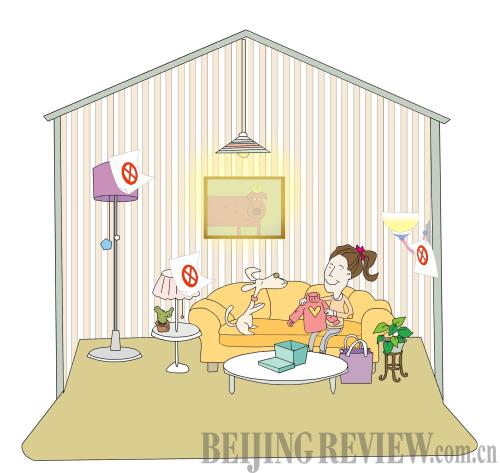|
 |
|
(LI SHIGONG) |
The National Development and Reform Commission of China (NDRC) came up with a draft for tiered pricing of household electricity in March. After nationwide hearings, the new pricing policy will be carried out from June. It also sparks heated debate on whether tiered pricing of household electricity is appropriate in China currently. The following are excerpts of some opinions on media.
Ding Yongxun (www.xinhuanet.com): The public has long appealed for tiered pricing for electric power. However, whether the pricing reform can be successful depends on whether the reform plan is able to cover both efficiency and fairness and will promote energy saving. Electricity price is a big concern for families, but it seems that the public is not enthusiastic about the hearings and has some worries about the pricing reform.
The public is now mainly considering three problems. First, will tiered pricing become another round of price hikes? According to the NDRC, 80 percent of households will continue to enjoy the current price. The consumption that exceeds the basic amount will be charged at a higher unit price.
Second, what should be a reasonable quota for the base consumption? If the amount is too low, then it will be easily exceeded, which will affect people's daily life. If it's too high, then the public might be encouraged to waste electricity. Additionally, electricity consumption differs between different regions, urban and rural areas and families, and so it's not easy to set up a unified standard.
Third, will the tiered pricing worsen inflation? China's electricity price has long stayed at a low level, but with the increasing cost of energy production, electricity prices are doomed to rise, too. However, the rising cost of water, electricity and gas will add to people's economic burdens.
Xun Yao (Jinan Daily): Tiered pricing for electricity will play the role of leverage. To set a low price for a certain amount of electricity consumption will help to ensure the poor's basic living. This leverage will help to save energy. China mainly depends on thermal power. But coal is an unsustainable resource, so tiered pricing is actually encouraging energy saving.
If people are charged at a higher price because they consume more than the quota, then most of them will choose to cut their electricity use. If the price of electricity differs at different sections of the day or season, spiking during the peak season, for instance, then many people will choose to consume less during these periods.
At present, tiered pricing is not fully accepted by the public yet. Most people worry that the so-called tiered pricing may turn out to be an excuse to raise electricity prices.
He Yong (Dazhong Daily): Tiered pricing for electricity is not a price hike, because it will have little impact on the daily life of the majority. Currently, household electricity use accounts for only about 10 percent of the total consumption in the country. Raising the electricity price will do little to resolve the problem of electric energy scarcity.
Only those families with big electricity consumption will have to pay a higher price for usage. But they are mostly middle- and high-income families and so won't be affected.
By adopting tiered pricing for household electricity, the Chinese Government intends to promote social fairness and energy conservation on the basis of ensuring the public's basic right of living. Under the tiered pricing system, low consumption families' living standards will not be affected, while high consumption families will have to pay a higher price for their overuse. In this way, some families might be discouraged from excessively consuming electricity.
Better yet, the fundamental way to relieve electricity shortages and stop power plants from losing money is to break up monopolies within the power industry so that power plants can enjoy more profits, rather than rely on price hikes or tiered pricing.
| 